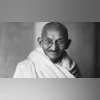India has been home to many great freedom fighters who sacrificed their blood and lives for India's freedom from the British rulers. While a fair share of freedom fighters is present in every country, India has been blessed with a large number of bravehearts who did not hesitate while giving their all for securing the freedom of their beloved country.
The extent of the sacrifice of Indian freedom fighters who lost their everything cannot be imagined. Some chose the path of non-violence while others revolted against the British army leading India to gain Independence after centuries of struggle on August 15, 1947.
Here's the list of freedom fighters and their exemplary contribution
Mahatma Gandhi
Mohandas Karamchand Gandhi, popularly known as Mahatma Gandhi, played a vital role in India's freedom struggle and ran many campaigns across the country against the British. Gandhi led several movements such as Champaran Satyagraha in 1917, Kheda Satyagraha in 1918, and the Ahmedabad mill strike in 1918 that created a sense of fear among Britishers.
He never left his hope for freedom and continued to struggle with the Non-Cooperation movement, Salt Satyagraha, and the Quit India Movement. He was also named “father of the nation” for his selfless contribution.
Sardar Vallabhbhai Patel
Sardar Vallabhbhai Patel is also known as the "Iron Man of India". He was a very popular personality among Indians and made significant contributions to help India gain freedom. He was the secretary of a well-known political organisation called Gujarat Sabha.
More From This Section
He came into the limelight after starting the Kheda Satyagraha Movement in 1918 in Gujarat under the guidance of Mahatma Gandhi. He then again started a fight against the British regime for Bardoli who were striving to pay increased taxes even during the financial crisis. Post-independence, he became the home minister of India.
Bhagat Singh
Bhagat Singh was one of the greatest freedom fighters who gave the ultimate sacrifice for India's freedom. He participated in the mistaken murder of a junior British police officer as retaliation for the death of an Indian nationalist. He was also involved in a symbolic Central Legislative Assembly bombing case in Delhi and conducted a hunger strike in jail. For his brave acts, he was covered by an Indian-owned newspaper and soon he became a household name in the Punjab region.
Chandra Shekhar Azad
Azad was one of the most important freedom fighters in the history of India. He reorganised the Hindustan Republican Association (HRA) even after the demise of its founder Ramprasad Bismil. Born in the family of a Pandit, his mother wanted him to be a Sanskrit scholar and she sent him to Kashi Vidyapeeth for his education.
However, destiny decided something else for him so he got attracted to the idea of independence and resultantly joined Mahatma Gandhi's non-cooperation movement. He was presented before district court at the age of 15 and his father gave him the name Azad and his home as Jail.
Mangal Pandey
Mangal Pandey was a great Indian soldier who played a significant role in the Rebellion of 1857 against the British. He was a member of the 34th Bengal Native Infant Regiment. A postage stamp was issued by the Indian government in remembrance of Mangal Pandey. He was the first Indian soldier who attacked the British and the Rebellion of 1857 became the major incident to be known as the Sepoy mutiny.
Vinayak Damodar Savarkar
Savarkar is a significant member of the Indian freedom fighter who got the prefix 'Veer' from his followers. He was the writer, politician, activist and a leading face of Hindu Mahasabha. He was an atheist but a strong follower of Hindu philosophy. He wrote the book "THE WAR OF INDEPENDENCE" which was banned by British Colonial authorities.
Ashfaqullah Khan
Born on October 22, 1990, he became a freedom fighter and was sentenced to death, together with Ram Prasad Bismil, in the Kakori train robbery, for their role in the Kakori train robbery of 1925. He was also incarcerated in the Faizabad jail and executed there in April 1927 after being awarded a death sentence.
Bipin Chandra Pal
Bipin Chandra Pal, also known as the 'Father of Revolutionary Thoughts", was born in Habiganj District, present-day Bangladesh. He comes from a wealthy Hindu family and his father was a Persian scholar. He was mainly inspired by Lal, Bal, and Aurobindo Ghosh who inspired him a lot. He was credited with spreading the idea of Swaraj to India through his famous books, including Indian Nationalism’, ‘Swaraj and ‘Nationality and Empire’, ‘The Basis of Social Reform’, and many others.
Dadabhai Naoroji
Dadabhai Naroj, popularly known as "Grand Old Man of India" and "Unofficial Ambassador of India". Naroji was an Indian political leader, writer, and scholar. He also founded the Indian National Congress and was elected as president thrice, in 1886, 1893, and 1906. He also gave the theory of 'wealth drain' and got attention through his book “Poverty and Un-British Rule in India.”

)